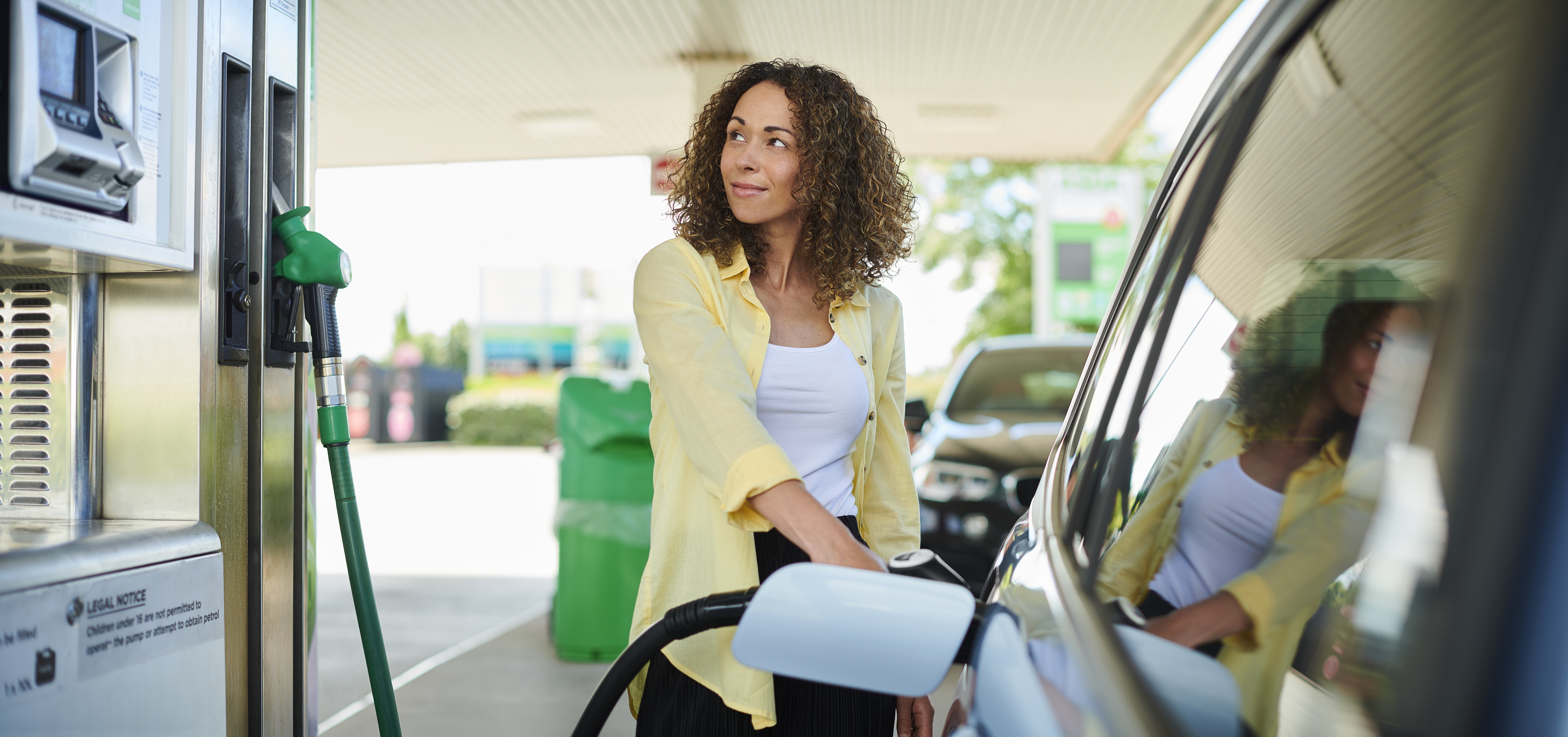Tips for Saving on Gas
Fuel up.
Your vehicle will run its best with the recommended gas, which is specified by the manufacturer of your car. Using an octane that is higher than required can be expensive and won't do your car any good. Try to purchase your gas early or late in the day, especially during warmer months. Gas is cooler earlier in the day, and denser. As temperatures rise, gas density falls, so you get less of it when you pump. Also, buy your gas early in the week if possible. Prices typically increase between Wednesday and Saturday.
Drive smoothly and slow down.
By driving aggressively, you are wasting gas. Accelerate smoothly, brake softly, and minimize how often you change lanes. This will not only help you save gas but will also prolong the life of your brakes and tires. When you speed, gas is wasted. For many cars, gas mileage will decrease substantially when you drive faster than 50 miles per hour. Slow down to save a significant amount of gas. Use cruise control to save gas by avoiding excessive speed-up/slow-down events, but only when it is safe to do so.
Reduce the amount of time you idle and travel lightly.
Just 10 seconds of idling your vehicle can use as much gas as restarting your vehicle. By turning off your engine while sitting at a drive through or waiting in a car line for just two minutes, you can save the same amount of gas that you would use to drive one mile. Excessive idling can also cause additional damage to cylinders, spark plugs, and you car's exhaust system.
Carrying additional weight can cause your mileage to drop. Travel lightly, and only keep essential items in the vehicle. To decrease resistance, avoid adding bikes and cargo boxes to your vehicle which can give you up to 25% fewer miles to the gallon.
Maintain your vehicle.
Many drivers think maintenance means they only have to change their oil every few months. There is more to maintenance than changing your oil. Your tires must be regularly rotated as well. Proper rotation can add as much as 10,000 miles to the life of your tires.
- Keep maintenance records. They can serve as useful tools and show you have taken care of your vehicle, which can increase its trade-in or resale value.
- Try to run your engine for a few minutes before using the heater, air conditioner, wipers, or other accessories. Accelerating with a cold engine can cause early engine failure.
- Using a poor grade of motor oil can lower your fuel economy. Following the manufacturer's recommendations for motor oil can improve fuel efficiency.
Tires are important.
When's the last time you had your tires rotated or you checked their air pressure? Properly inflated tires reduce friction and offer better mileage. As the temperature changes, it can cause tire pressure to fluctuate, so be sure to check the psi regularly, especially during seasons when the weather shifts drastically.
Combine errands and reduce travel.
Take the route with the fewest stop signs and traffic lights. The shortest route may not always be the most fuel-efficient way to go. If possible, park in a central spot and walk from place to place. Instead of driving to run errands, try shopping online and use online services for banking and paying bills.
Who knows how long gas prices will remain high. Right now, gas prices seem to be soaring with the current average price around $4.00 per gallon. In the meantime, we hope these tips will help you with managing higher gas prices and maybe save.

